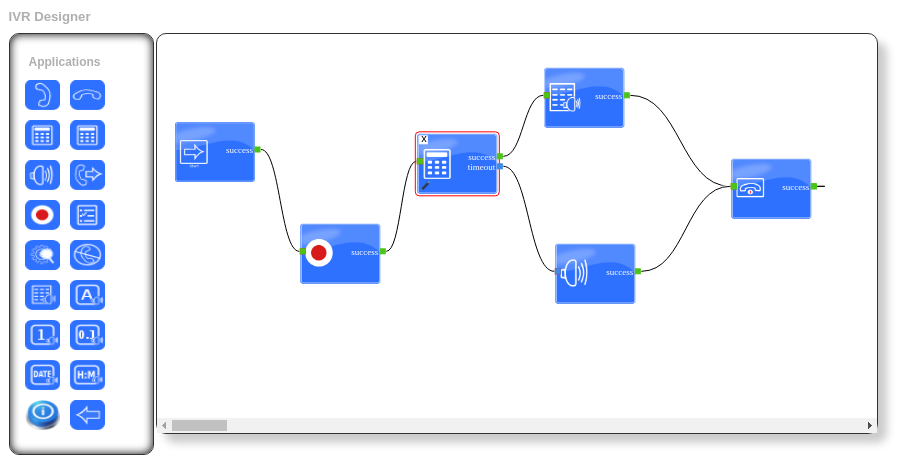In the fiercely competitive business environment, standing out from the competition is paramount for organizations. A key strategy to achieve this is through exceptional customer service, which involves building strong relationships and ensuring positive customer experiences.
Modern call center software is a powerful tool for achieving outstanding customer service. It equips businesses with a range of tools to efficiently manage their call center operations. By utilizing these tools, businesses can enhance customer service, boost sales, and improve overall efficiency.
Efficient Call Routing and Management
Efficient call routing and management ensure incoming calls are directed to the appropriate agents or departments in the most effective way. This can be achieved through:
- Automatic Call Distribution (ACD): A system that routes calls to available agents based on predefined criteria like the caller’s department or inquiry nature.
- Interactive Voice Response (IVR): A system that lets callers interact with a computer to self-service their needs, such as making appointments or checking account balances.

- Chatbots: Programs that simulate conversation with humans to answer customer questions or provide support.
Efficient call routing and management improve customer satisfaction, increase productivity, and reduce costs. Quick and accurate call routing reduces wait times, enhances customer satisfaction, and allows agents to focus on more complex tasks, ultimately lowering manual call distribution costs.
Integrated Customer Information Access
A vital feature of modern call center software is its integration with various CRM systems and databases. This integration enables agents to access real-time, comprehensive customer information, allowing them to provide personalized and contextually relevant support. With a complete view of customer history, previous interactions, and preferences, agents can offer tailored and efficient service, reducing the need for customers to repeat information and enhancing overall satisfaction.
Seamless Omnichannel Communication
Customers today expect seamless interactions across multiple channels, including voice calls, emails, web chats, social media, and SMS. Modern call center software supports omnichannel communication, allowing agents to manage inquiries and provide support across various channels from a single interface. This streamlines agent workflows, reduces the need to switch between applications, and ensures consistent service. Agents can smoothly transition between channels during interactions, offering a personalized and uninterrupted experience to customers.
Insightful Reporting and Analytics
Data-driven decision-making is crucial for improving productivity. Modern call center software offers extensive reporting and analytics capabilities, providing valuable insights into performance and customer behavior. Managers can track key performance indicators (KPIs) such as average call duration, call abandonment rates, and agent availability. This helps identify bottlenecks, allocate resources effectively, and optimize operations. Detailed analytics also reveal customer trends and patterns, aiding in proactive issue resolution, enhancing training programs, and identifying upselling or cross-selling opportunities.
Advanced Automation and Self-Service
Automation significantly enhances call center productivity. Modern call center software includes intelligent automation features like IVR systems, chatbots, and self-service options. These technologies enable customers to resolve simple queries or perform routine tasks without agent assistance, freeing agents to handle more complex issues. Automating repetitive tasks allows call centers to manage higher call volumes and achieve faster response times, boosting customer satisfaction and agent productivity.
Real-Time Monitoring and Coaching
Modern call center software enables supervisors and managers to monitor agent performance in real-time. They can listen to live calls, view agent screens, and provide immediate feedback or assistance. This real-time monitoring helps identify training needs, optimize call scripts, and implement performance improvement strategies promptly. Integrated coaching tools allow managers to provide ongoing training and support, enhancing agent skills and knowledge and ultimately improving productivity.
Scalable and Flexible Solutions
Modern call center software offers scalability and flexibility to meet changing business needs. Call centers can easily adjust the number of agents and resources required as call volumes fluctuate. Cloud-based solutions provide on-demand scalability, allowing call centers to quickly adapt to peak periods or business expansions without additional infrastructure. This ensures optimal resource allocation and cost-effectiveness while maintaining high productivity levels.
Conclusion: Adapting to Modern Call Center Solutions
In the rapidly evolving call center industry, modern call center software is essential for enhancing productivity and delivering exceptional customer experiences. By streamlining call routing, integrating customer information, supporting omnichannel communication, offering advanced reporting and analytics, enabling automation and self-service, facilitating real-time monitoring and coaching, and providing scalability and flexibility, call centers can achieve higher efficiency, improve customer satisfaction, and drive business growth. Embracing these technological advancements can revolutionize call center operations and position businesses for success in the modern customer service landscape.
Leveraging Open Source in ICT
